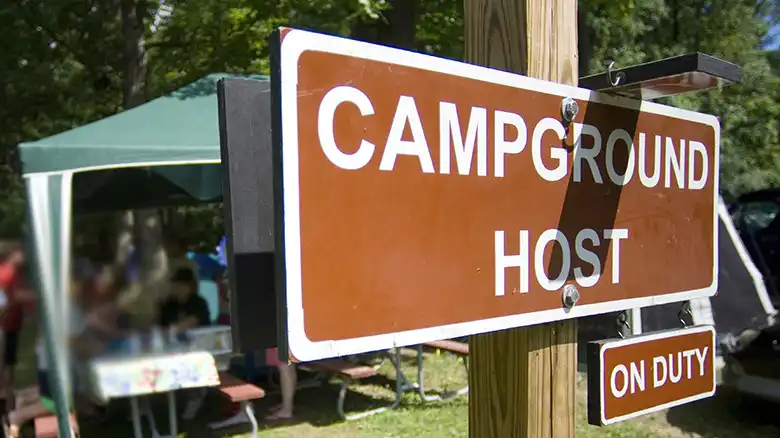As a longtime roadschooling parent of three children, I’m often asked how we handle curriculum on the road. With no desk space, textbooks, or traditional classrooms, roadschooling certainly presents some unique challenges! However, after 7 years of full-time travel across 25 countries, I’ve gathered a toolbox of resources and ideas that work wonderfully for our mobile lifestyle. Roadschooling has allowed us to see the world as our classroom and tailor learning to each child’s interests and strengths. I’m excited to share everything I’ve learned about designing a “Worldschooling” curriculum.

Core Subject Approaches for Roadschooling
When it comes to covering core subjects like reading, writing, math, science, and social studies, roadschoolers have ample options. Through experimentation, we’ve found that blending textbook work, real-world projects, online classes, and unit studies keeps material engaging while aligning with state standards.
Language Arts
For language arts, we utilize a few key resources. To build strong reading skills, we bring along leveled readers, comprehension books, and novels selected specifically for each child. I set aside time for silent reading daily. Kindle Unlimited has also been a huge library for accessing digital books overseas. For grammar, writing mechanics, and composition, Easy Grammar texts provide excellent review and instruction aligned to grade level. Using their student workbooks, we cover new grammar concepts and writing types each week. The kids proofread emails to friends and work on creative writing prompts for fluency development too.

Several roadschooling families we meet also swear by the Bravewriter curriculum which uses copy work, dictation, and poetry memorization to immerse kids in fine writing examples. When possible, we try pairing reading selections with the history period we are studying more about.
Math
For math on the road, the wide selection of online programs makes it easy to find appropriately challenging material. We fell in love with Teaching Textbooks for its video instruction paired with paper worktexts. The online access and grading features are extremely convenient while traveling overseas. For extra math practice, SplashLearn and Prodigy Game are fun apps using game-based learning.

When the Internet is unreliable, we simply bring along workbooks in areas needing improvement. Recently, we’ve started more project-based learning having the kids calculate expenses in foreign currencies when budgeting trips or estimate driving times using mileage and speed limits.
Science
Early on, science was tricky for us on the road because the kids missed having labs full of equipment and materials. Now we tap into digital resources like Discovery Education and use household items to conduct experiments. Mystery Science provides engaging lesson plans paired with hands-on activities using common supplies.

By connecting with other roadschoolers, we’re also able to split up who researches and presents various science topics and then share. Local learning brings conservation, botany, anatomy, ecology, and more to life everywhere we explore so we keep field journals too. I’ve been thrilled to see how naturally inquisitive the kids have become when figuring out new environments.
Social Studies
Without a doubt, travel itself has been the best social studies teacher! Experiencing foreign cultures, customs, languages, architecture, museums, and monuments brings history and geography to life unlike anything from textbooks. I select key points in each country’s history for the kids to research more before arriving. They present what they learned to each other at relevant sites later. The Ultimate Geography & Timeline Guide offers engaging activities for remembering countries, capitals, borders, and more. Using Mapping the World by Heart as a reference, the kids regularly practice their map drawing skills which serves as excellent spatial reasoning practice too.

For civics and government foundations when abroad longer, Pearson’s MyWorld Interactive guides the exploration of the U.S. We access BBC Bitesize for the UK curriculum free online spanning additional social studies concepts.
Real-World Projects for Roadschooling
Roadschooling lends itself easily to projects, research assignments, and experiments that utilize our travels to maximum advantage. As the kids have taken more ownership over their learning pathways, I’m constantly amazed by what they come up with!
Language Learning
Language learning has been hugely rewarding on the road. After the kids choose target languages to study, I have them set language goals for each country we’ll spend significant time navigating. Local tutors have been readily available affordably overseas. The kids also practice through language apps like Duolingo, videos on YouTube, and audio lessons from Pimsleur or Mango Languages. Immersion naturally builds vocabulary too. Keeping goal charts and giving language updates at dinner keeps us all engaged in learning together.

Service Learning
Giving back has also been integral for the kids’ roadschooling journey. We’ve volunteered with sea turtle conservation organizations, taught English at underfunded schools overseas, worked at animal shelters, assisted in orphanages, helped renovate community centers, and more. The kids reflect on how each experience impacts local needs, economies, resources, and policies.

Entrepreneurship & Finance
To gain financial literacy and business skills, each child manages a small budget for clothing, toiletries, and personal expenses annually. They track their spending, research exchange rates when we change countries, estimate future needs by adjusting for currencies and identify income sources. Each child also began a small business – baking, making jewelry, painting custom signs for other traveler families, pet-sitting, proofreading, social media consulting, etc. They’re learning so much about profit margins, pricing products/services, identifying target customers, marketing aesthetics, and more!

Online Class Options for Roadschoolers
While I initially feared losing classroom community on the road, connectivity today allows wonderful roadschool co-op options globally. We’ve taken outstanding interactive courses that count towards the kids’ high school transcripts covering topics like:
- French – Accelerate Education
- Genius Hour Passion Projects – Edventures
- Mythology – Outschool
- Digital Photography – National High School
- AP Calculus AB – Thinkwell Homeschool
- Conversational Spanish – Spanish Steps Academy
I asked each child to identify skill areas they’re eager to develop so we can explore subjects that may have been unavailable in our small hometown school. Their input makes the curriculum feel relevant and exciting. With courses spanning everything from paleontology to publishing to Python coding now, our travel schedule is their only limit!
Roadschooling Unit Studies
Planning themed units centered around history periods, cultures, ecosystems, and more we encounter has been invaluable for road schooling. Instead of fragmented textbook chapters, we immerse in interconnected topics sharing related literature, activities, media, and local learning.
As we gear up to explore national parks across the western U.S. soon, our unit study focuses on conservation efforts, the leave-no-trace principles, and America’s diverse biomes. We’re currently reading selected Muir, Thoreau, and Leopold writings that modeled environmental stewardship’s importance. The kids will journal observations hiking different terrains and temperatures ultimately making an explorer guidebook for kids highlighting unique plants/wildlife in each park.
I let the children develop questions driving further research on areas of interest to them whether related to Indigenous peoples, geology, or wildlife in various regions we’ll traverse. The depth and retention through interconnected unit studies stand out as a top highlight of our road schooling adventure!
Roadschooling Networks
One final invaluable asset along our family’s road schooling path has been connecting with other traveling families. Through social media groups and educational cooperatives like Worldschoolers Online, the kids have found dear friends across the globe. Fellow roadschoolers share curriculum recommendations, local learning opportunities, favorite educational apps/podcasts, and encouragement.
Parents in my online community also swap planning ideas for history units, organizing transcripts, testing options, high school prep, and more. I had so many questions early on regarding roadschooling legalities state-by-state plus unpacking stereotypes about gaps in socialization or missed learning on the road. Other parents who’ve walked this path ahead of me graciously helped in each area – I love paying that guidance forward.
These relationships with fellow traveling learners helped change road schooling from an intimidating concept initially into an adventure I’m tremendously grateful we’ve stuck with year after year. I can’t wait to see what educational wonders this unconventional pathway continues unfolding for my kids in the years ahead!
Roadschooling vs. Worldschooling
As related educational approaches embracing travel’s learning potential, roadschooling and worldschooling share certain qualities while differing in other aspects. Roadschooling traditionally refers to full-time travelers using the open road & beyond as their year-round classroom—blending immersive local learning adventures with a more traditional curriculum. Worldschooling also harnesses global explorations for authentic educational experiences but through intermittent trips or sabbaticals between some conventional schooling.
While roadschooling implies a continually itinerant lifestyle, worldschooling families may live predominantly in one place punctuated by weeks or months of intentional travels synchronized with academic goals then return to their hometown classroom, online school, or homeschool resource center. Either philosophy can be customized to your family’s unique priorities!
Roadschooling High School
High school roadschooling uses similar approaches – unit studies, projects, online classes, etc. Additional keys are planning course sequences meeting graduation requirements early on, accessing accredited distance learning programs, and pursuing SAT/ACT testing for college-bound students. Maintaining detailed transcripts and dual enrolling at online high schools provides helpful documentation too.
Socialization on the Road
Between local activities, roadschool co-ops, consistent online connections, and traveling in community with other families, we’ve found socialization abundantly rich roadschooling! Kids develop meaningful friendships across ages and build confidence engaging diverse cultures.
Addressing Learning Gaps in Roadschooling
Occasional knowledge gaps pop up like any school model but are quickly addressed through the curriculum fluidity roadschooling allows. Frequent assessments help identify and then remediate spotty areas. Roadschoolers also gain incredible depth in other topics schools may overlook centering learning on child-specific interests.
How to Afford Extended Travel with Kids?
Through smart budgeting, credit card points, volunteering/working abroad, and using house sitting/home exchange programs, roadschooling can work on remarkably modest budgets! We aim to travel full-time covering housing, gas, and food for under $3,500 monthly for our family.
Advice for New Roadschooling Families
Give yourselves grace during your first year experimenting to find approaches suiting your family’s unique needs and interests! Roadschooling guides like The Ultimate Guide to Roadschooling by Aimee Horth offer helpful starting points too. This lifestyle has a learning curve but pays off richly as kids dive into education customized just for them!
Final Thought
After nearly a decade of roadschooling coast-to-coast across dozens of countries, I cannot more highly recommend this educational path’s profound gifts. With the world as your classroom, learning blooms brilliantly through boundless real-world projects, cultural connections, and child-led pursuits crafted into each school day. Roadschooling curriculum guided by curiosity across literature, technology, language, service, and beyond enlightens young minds with contagious joy. If you feel stirred to explore roadschooling’s potential for your family too, begin dreaming – this life-shaping adventure awaits!


